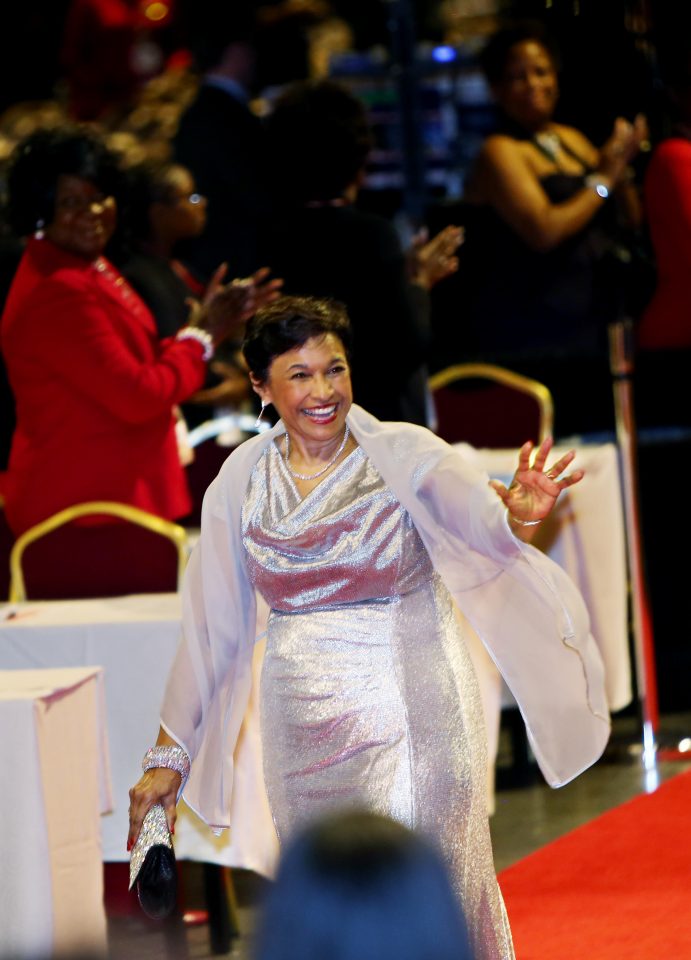
This Founders Day, members of Delta Sigma Theta Sorority Inc. are reflecting on the organization’s roots in social activism.
On Jan. 13, 1913, 22 African American undergraduates at Howard University founded Delta Sigma Theta Sorority Inc. Their first public act was to march in Washington’s Women’s Suffrage Parade, which erupted in violence. Police did nothing to hold back the crowd of men, many of them drunk, who shoved, tripped and spat on the marchers, a hundred of whom had to be taken to the hospital.
It was doubly dangerous for the Black women, who were subjected to racism even from suffragist leaders Elizabeth Cady Stanton and Susan B. Anthony and others who insisted that the only African American women’s organization participating in the parade march behind the 5,000 Whites in a Black procession.
A fearless organization requires a fearless leader, and current national President and CEO Beverly Evans Smith fits the bill. Smith’s father was a civil rights activist who was radical about integration in the small town in northern Ohio where they lived. The family integrated schools, churches and swimming pools. So relentless was her father that he even integrated the local cemetery where he was buried. Growing up, she and her family experienced death threats.
“I was in the in third grade when we integrated a White neighborhood, and I remember the night we all moved in my dad stood at the front door with a Winchester rifle all night long while White people rode up and down the street yelling things.”
Another consequence of integration was that Smith was always the “only” Black. That is, until she forged a sisterhood while at Ohio’s Bowling Green State University.
“Delta’s sisterhood meant a lot for me. There were only about 100 to 150 Black students on Bowling Green’s campus, so I was a line of one, but I had 10 big sisters,” said Smith who thrived on campus and loved living in the Delta’s sorority house.
After graduating, she continued her service in the organization. She eventually served as national first vice president and national secretary and previously was employed as Delta Sigma Theta’s executive director. Smith, who is currently a member of the board of directors for the National Council of Negro Women (NCNW) and previously served eight years as the chair of the Cobb County Board of Elections and Registration, credits the sorority with reinforcing the values of social activism and community service she knew growing up.
“One-hundred-fifty-five sorors ran for office across the country last year, and I’m so proud to say we have a significant voice in congressional seats,” she said. “My goal is to have a Deltas in office in every state.”
In recent decades, Deltas have shown themselves to be a force for their sorors seeking political offices, first jamming congressional fax machines with letters of support for Alexis Herman, who was appointed Secretary of Labor by President Bill Clinton, and more recently by flooding the confirmation hearing of Loretta Elizabeth Lynch, who eventually became the 83rd U.S. Attorney General, with a sea of sorors dressed in red and white.
Last week, Smith attended the Congressional Black Caucus (CBC) swearing-in of her soror Lucy McBath, who beat the Republican incumbent, Karen Handel, in Georgia’s 6th Congressional District. McBath became a gun safety activist after her 17-year-old son Jordan Davis was shot to death in 2012 at a Jacksonville, Florida, gas station. Davis’ killer was sentenced to life in prison.
“[McBath] is the first Black congressperson elected from this district since Reconstruction…Newt Gingrich sat in that seat. The fact that she won this House seat in this district in Cobb County just really speaks to how far we’ve come,” Smith said about McBath, now a part of an even smaller group of distinguished Delta congresswomen who include Shirley Chisolm, Barbara Jordan and former CBC Chair (and Delta’s 21st national president) Marcia Fudge.
“You have to be at the table. Sitting outside protesting is one thing, but sitting at the table making the rules is where we are really going to be able to make a difference,” Smith said. “We have seminars on how to run for office. We have training sessions on how to select a good judge. We want people to use their voting power.”
Indeed, 100 years after being forced to the back of the line, Delta Sigma Theta Sorority led the Suffrage Centennial Celebration and with its 250,000 initiated members, and its legacy of activism leads the world.









